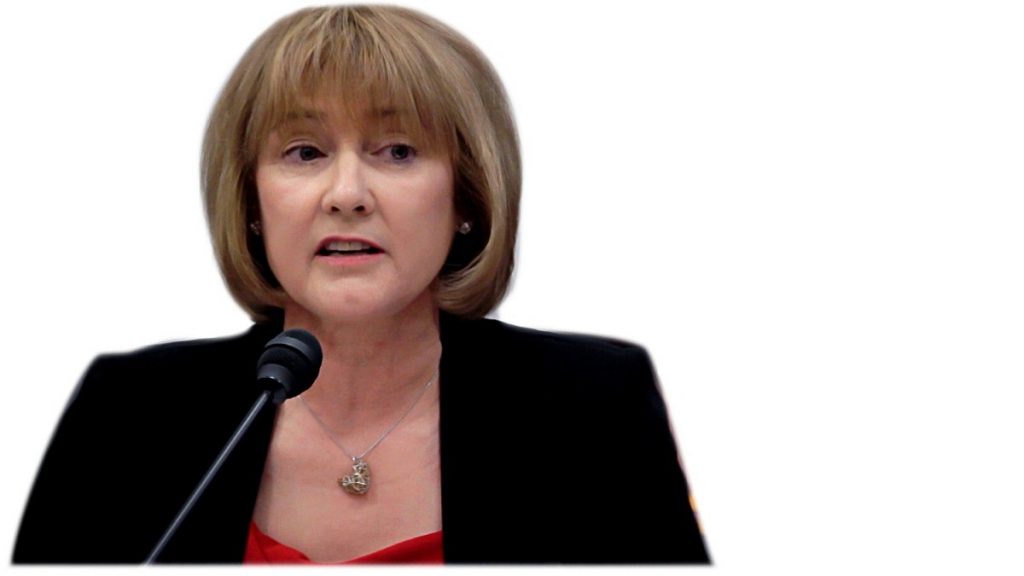Comment: Political advertising should be allowed on UK television
By Jan Creamer
A narrow European Court of Human Rights (ECHR) ruling this week found that the UK's ban on political advertising complies with the European convention on human rights. It's a blow for organisations such as Animal Defenders International (ADI), who are trying to make our voices heard.
It has been said that the intention of the Communications Act 2003, is to protect the public and create a level playing field. ADI represents members of the public and the playing field is already uneven. Companies can advertise and promote their 'green' and/or 'socially responsible' credentials and we cannot challenge them through the same media.
ADI is a peaceful non-profit advocacy group funded by public donations. In 2005, we produced a TV advertisement, which showed a chimpanzee in a cage and asked for a donation towards the 'My Mate's a Primate' campaign to end the commercial use of primates in entertainment, including their use in advertising, films and television.


Respondents would receive an information pack about the threats to primate populations in the wild and the drivers that create those threats; including public perceptions and attitudes towards other species, created by advertisers. The responder could hear about the issues that we, and thousands of others, care about.
We worked hard to ensure that our advertisement complied with broadcasting rules; we featured a young actress with narration by comedian Alexei Sayle. Despite our efforts, the Broadcast Advertising Clearance Centre banned our advert, because ADI was deemed to be a 'political' group under the Act.
It was not the content of our advert that broke the rules; it was the nature of our existence as an organisation.
The Act contains a wide-ranging ban on any political advertising in the broadcast media. 'Political' is defined widely to include social advocacy and expressions of opinion on a matter of controversy in the UK.
This means that while primates and other wild animals can be used to sell products or services, it is not permitted to create awareness about the impacts of these actions on those species.
We challenged the decision, with moral support from groups such as Amnesty International and the RSPCA. However the High Court and the House of Lords upheld the decision in December 2006 and March 2008.
We decided to bring the case to the European court for a final decision, heard in March 2012, because the UK's restrictions were (and remain) more draconian than other countries.
Charities can advertise on television to raise funds, but not talk about what the public and governments can do to prevent the harms they work to ameliorate.
For example the 'Make Poverty History' ad where celebrities clicked their fingers, was banned. An oil company can broadcast vanity advertising about its green credentials, but a campaign organisation cannot challenge that message on TV. At the time we created our advertisement, the soft drinks giant Pepsi was using a performing chimpanzee in a TV commercial.
We were concerned that no matter what the content of our advertisement, because we are a non-profit campaign group, the public would not hear from us on television. We can advertise in the print media and over the internet, but not TV.
ADI's lawyer, Tamsin Allen, Bindmans, said: "Political speech is rightly protected by the European court of human rights as a fundamental ingredient of free expression in a healthy democracy. It was argued in this case that the wide blanket ban on all political advertising in the UK was an inappropriate and unnecessary restriction on free speech.
"A minority of eight grand chamber judges in the European court agreed, saying in a powerful dissenting judgment: 'Entirely and permanently closing off the most important medium of communication to any and all advertised messages about the conduct of public affairs is a harsher constriction of freedom than is necessary in a democratic society. Freedom of expression is based on the assumption that the speakers, not the government, know best what they want to say and how to say it'."
"However, a majority of grand chamber judges took the view that the ban was necessary to 'protect the democratic debate and process from distortion by powerful financial groups with advantageous access to influential media.' Many small advocacy groups will be extremely disappointed by this decision."
No other European or Commonwealth country has such tight controls on the broadcast of 'political' advertising, although many do prevent transmission of paid-for party political advertisements.
A very similar ban in Switzerland was overturned by the European court of human rights and replaced by a lesser restriction on the broadcast of party political and electoral advertising.
Concerns about the fairness of the ban have been expressed by many leading academics and this judgment will be disappointing to many free speech campaigners and advocacy groups.
The government is concerned that if we allow more free speech on television, we could open the gates to US-style political 'attack ads'. ADI understands this, but there is a balance to be struck.
It is surely not beyond the ability of regulators to discern the difference between an ethical advocacy group such as ADI and a political party or purely political advocacy group.
The government is also concerned that we could be outspent by industry. We are already outspent by industry. Stopping us spending at all does not help.
We don't need to throw away all freedom of speech because it is easier to block all right to free speech on television, than to take a more discerning approach. The print media does not have such a blanket ban and this has not caused our democracy to disintegrate.
Jan Creamer is chief executive of Animal Defenders International.
The opinions in politics.co.uk's Comment and Analysis section are those of the author and are no reflection of the views of the website or its owners.

